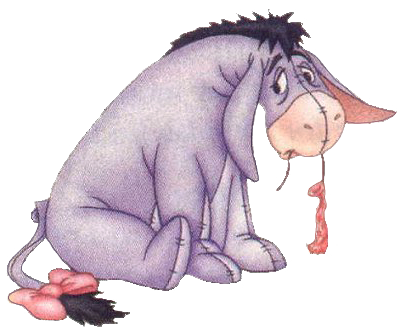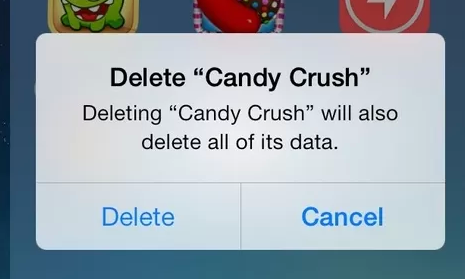Enjoying It by Alfie Bown
Zero Books, 2015.
This book is a study of enjoyment and of the enjoyment of studying. It asks what enjoyment says about us and what we say about enjoyment, and why.
One of the perennial questions of philosophy, and life, remains Happiness – what is it, how do we get it? As far as contentment goes, being satisfied with our lot, the common refrain harks back to the relativism of taste and acceptance, of place, status, ability via a tempering of ambition. But what of the state of happiness from moment to moment – Alfie Bown pounces on this exacting state – the nature of enjoying – and picks apart a wider schema of enjoyment – how it is qualified and constructed by the conditions of thought. To the point that enjoyment is under threat of being rationalized, managed and governed by taste so that people are driven towards consumption as the unlimited end of enjoyment.
On surface reading, you might think Bown is arguing for the old-school enforcement of Victorian higher pleasures against the lower – this is exactly not his point – enjoyment is a simple, it occurs rather than being brought about. Alfie goes further in unpicking the status anxiety that comes with enjoying and the wider implications of this, both cultural and political. He quickly does away with notions of tastes – opera versus masturbation – as this is part of the paradigm of “good” enjoyment that manufactures and enforces a trickle-down of how and what we should enjoy.

Reader comment: “Not a big fan of reading whole articles? To be fair, Candy Crush won’t play itself I guess.”
The word enjoyment springs a clue here – to be in a state of joy – surely this is the holy, pure, near-primal sense of elation, as opposed to a tolerated shrug of required reaction. This spontaneous enjoyment, Bown references this through the Lacanian notion of jouissance. Apart from pleasure, it is un-objective, has no means to an end, it simply is. Jouissance, is a playful and pure expression of itself, to the extent that seemingly base and straightforward acts, such as picking one’s nose, might be enjoyed without clear reason, but requiring no explanation.
The straightforwardness of enjoying (be it adjective or verb?), is hijacked by a secreted cultural imperative – to enjoy – to constantly be or moving towards enjoyment – otherwise, what’s living for? This links in with notions of popular consumerism, where a perceived lack or deficiency jumps the gun in selling us things we don’t need in order to create or embellish enjoyment.
Bown attacks this notion, modern life overcomplicates enjoyment, enforcing conditions, to the extent that even our most subversive and radical notions of enjoyment are made upon stringent lines of value-judgement according to fixed criteria.
Worse still, what often appears and is packaged as radical is often done so in service to the prevailing mode of enjoyment. As enjoyable experiences are reified; ideas made concrete to the point of cliché, the scope of individual, or private, enjoyment is narrowed. This is an interesting point, and it would be useful for Alfie to talk more about radicalism and enjoyment, such as street art – I might not buy a “work” but it is “sold” to me, and I in turn buy into enjoying it at whatever level – I am told it is good art. But as the initial artistic movement is absorbed into mass culture enjoyment, the rules by which we engage with street art, and our expectations of it, become fixed and the system remains in place
In essence, enjoyment is not something we can pursue, or even select, Bown argues what we enjoy selects and finds us. General enjoyment need not be tied to specific forms, let alone art. Indeed, regardless of taste, we all enjoy differently as this example in the story “Eeyore’s Birthday” from A. A. Milne’s Winnie-the-Pooh, clearly illustrates:
At this point Eeyore became quite excited, because has just spotted something very interesting indeed. He tells Pooh that his balloon will fit into the pot! Pooh says no, and explains that balloons are much too big to go into pots, and what Eeyore should do with a balloon is hold it and…
But Eeyore says that his balloon is different, and he picks it up with his teeth, and puts it into the pot – and it fits beautifully! So he takes it out again, and puts it in again, and takes it out again, and puts it in again.
“So it does!” said Pooh. “It goes in!”
“So it does!” said Piglet. “And it comes out!”
“Doesn’t it?” said Eeyore. “It goes in and out like anything.”

Eeyore has been given a balloon that has burst in transit, but the perennial miserabilist experiences sheer enjoyment in taking it and out of a honey pot – pleasure in misuse
Not only does a minor wave of enjoyment neatly abut Eeyore’s existence, it arises from what should have been a disastrous, thwarted experience. For me, this gives emphasises Alfie’s idea that even the framework of prescribed lack versus desire, and the unclear chicken/egg positioning of those terms, are just another way of thinking that narrows the possibility of enjoyment.
So how do we go about, enjoying in the current system? Bown makes an interesting comparison between enjoyment, work and games. In the Wittgensteinian sense, a game is defined by its rules, and so too is the common deployment of the word “enjoying”. Modern enjoyment hinges upon work, in which we attempt escapism and distraction, most commonly through mobile games or internet browsing (Facebook, porn, gifs et al), but stay within the limit of workload and work time, we also require our work so we can afford our enjoyment. Bown plays with the notion of a perceived lack before the need of work and purchasing power to reach higher levels of enjoyment, to intensify a fishing trip, I need a better rod. We are taught to defer enjoyment, I want X, I must save, Sartre talks about anticipation as the existential hinge of seeking or working towards pleasure, the journey not the destination etc. But even then, the all-pervasive economics of chasing these purchasing dreams of what we cannot afford (right now) establish the paradigm of working to save (and spend) – enabling our enjoyment to be managed.
In his introduction, Alfie alludes to the growing practice of over-sharing, through social-meida and the status update our lives spill out into public exhibition. This is represented by the increasing enjoyment-race displayed through Facebook and other forms of social media via the all-too-frequent, up-to-the-minute status update. We present an image of enjoyment and actively promote our success in our endeavours, scoreboards chart an escapist mode of competition, promotions or bigger houses mark our inevitable scaling of the corporate ladder.
People are keen to emphasise and to some extent embellish the positives in their life, hypeing their existence to degrees of attainment, “milestones” – but measured against what? Most likely, others, enjoyment becomes competitive. The fear of missing out, where people scan the profiles of others by way of comparison, is often a driver to enjoy more or be seen to be doing so, enjoyment is a form of success – even though enjoyment is not about attainment, but being. Surely victory is defined by trouncing your enemies – or outdoing your work colleagues / fellow players – I should enjoy it more then?
The phrase “being free to enjoy” is a loaded one; to be happy as a pig in ignorance, or open to a (terrifying) world of possibility. There is a vicious irony within the “allowances” granted to us in liberal Western democracies to enable positive freedom. We are insulated from true radicalism (of enjoyment) through a Kafka-esque security in being able to rail against a system of control, often playing along with certain rules, such as anti-war protests, as these systems in turn provide us with something to kick against.

One example of this would be a naughty school child removed from the classroom and made to sit alone in an empty room, unobserved and isolated, (yes, I was that child). Having lost both audience (their classmate peers) and nemesis (Mr Jones), much of the enjoyment in being radical (misbehaving), like the subterranean use of illegal substances, is defused, the revolution is somewhat neutered. The enjoyment might be said to come, in part, from the very restrictions being placed upon it, like Nietzsche’s “god is dead” and Kafka’s dutiful resentment of the law, (towards individual notions of a higher justice), if these rules are not enforced, then the rebellion has no traction, it is a mere illusion – either the enjoyment comes about “naturally” or it must be created by an overarching system, such are we embedded in our fixed modes of enjoyment.
In much the same way as the accused finds it way within the law, as a comrade is affirmed through communism and a citizen participates in democracy – by masochistic placement – but also sadistic enforcement – to inform upon others and ourselves – there is a degree of schadenfreude (shameful joy) in enjoying within confines. So too can I deepen my alienation by abdicating from responsibility for my situation, as this is how, where and why (the necessary and sufficient conditions) in which my life is seen to, and must, flow.
Alfie contrasts Angry Birds with Football Manager – the games share a category of handheld mobile entertainment, but Bown underlines the contrast of distraction compared to a genuine investment of thought, discipline and ideas. Bnce again this is not about taste in enjoyment, but the extent to which there is a meaningful return, a game that enriches by interaction, rather than perpetuates distraction.
Bown makes a brave step with a meta-question around the enjoyment of critical theory itself…if I state – “I am enjoying this!” have I forced the question? Acted in bad faith? For me, there is an enjoyable (whoops) degree of mysticism in Bown’s conception of enjoyment, in that to speak its name, or confirm its presence is to sell it short and might undermine the moment. As such the weight of other academic discourse and critical theory are sometime victims of their own insight.
With the accumulation of 20th century art and culture, we have arrived at a critical post-modern impasse, in which art is referenced, sampled and existing works are recycled and re-imagined. Where in this neo-Wasteland does the legitimacy of popularity sit in academic circles? There is an angle here, Bown argues to make studies of enjoyment de rigeur, as the active component of popular, mass culture, not mere case studies; trendy points of references to make courses and lecturers appear “hip”.
The appropriateness of our enjoyment is what is called into question. In the current cultural set-up it requires a degree of morality, behaviour systems – how to enjoy – let alone celebrate a goal scored at a football match, or to extend my enjoyment of all goals score at Premiership level, regardless of the side, no doubt this unbridled enjoyment would lead, at the very least, to a black eye, if not murder.
Why does so much of our enjoyment, “perverse” (because what is that – different?) or otherwise, have cause to be driven underground or remain unspoken (as a trigger for shame or shunning) Why do we so often require permission to embrace the enjoyment that comes naturally, or stamp down on gut instinct? Can we enjoy bad things, pornography, crap movies and fast food with a clear conscience? Or is irony necessary component? It would be nice to see this avenue of shameful and guilty pleasures explored further.
As with example of living within sets of rules, distraction justifies work. We offer ourselves glimpses of escape, so the return to task is vindicated, and acceptingly shouldered. A gentle erosion of Marxist alienation is drip-fed through a lack of worker unity and organisation through the isolationism of mobile app games, heads down, earphones in. Pigeonholing our leisure time into a compartmentalised fraction of our lives, set against the demands “usefulness” of our working week. As with the Kafkaesque tunnel-vision, these little victories are all part of playing a wider game, cops and robbers, workers versus bosses – the saccharin slow-death of Candy Crush diminishes the free-thinking individual, one individual in a series of bees allowed a taste of the worst honey and grateful for it, because there is a ruling queen at the nucleus.

Furthermore, the self-absorption and immersive nature of games risks a deadening of the real. With virtual life leading to instances of relationship breakdown and even divorce, added-to the destruction of workplace resistance, we are increasingly isolated, distrustful and observed on the clock or by higher tastes (imagined or otherwise), and ultimately we cannot get our unionised shit together to overturn the working conditions that perpetuate our cumulative dissatisfaction.
The positive aspect of games is somewhat over-looked, the mind-bath of distraction, where there is little or no consequence to our actions, is a pleasant reset from greater concerns that enables us to return re-focused to other tasks – in the same way that shameful or guilty ironic pleasures can act as a refresher from meaningful reality. Bigger games – such as World of Warcraft, create new realities, new enjoyment – I might go for a drink (online) with a fellow player, post-quest, we might engage in virtual sex, we hit it off over goblin wine, is this a mirroring of my real-world modes of enjoyment, or have I stumbled onto an alternative zesty enterprise of enjoyment – a form of dating, but not as we know it?
Richer games have become the new adventure; boxsets the new cinema, staying-in is the new going-out; this further steepens dislocation, but also opened new avenues of connection, multi-player, water-cooler analysis, a common ground from which to build. People talk about immersive game worlds, perhaps they are the gaming Shakespeare. But, this is circular and brings us back to the book’s central point of hierarchies of enjoyment by taste, they exist, but they should not determine the validity of enjoyment itself.
The question remains, how do we, as citizens, enjoy-ers and workers, escape the mass-processed Enjoyment sausage factory? I was enjoying this book, Mr Bown, I would like more of it…
Here Alfie Bown introduces his book:
https://www.youtube.com/watch?v=w5bGXdTwC2g
Enjoying It by Alfie Bown
Zero Books, 2015.
£7.99 print
£4.99 e-book
Author bio:
Alfie Bown is editor of Everyday Analysis, a blog and book series with Zer0 Books available at everydayanalysis.com. He taught English Literature at The University of Manchester, and writes on critical theory and comedy. He has written for several nonacademic publications as well, including The Guardian.
http://www.everydayanalysis.com/


